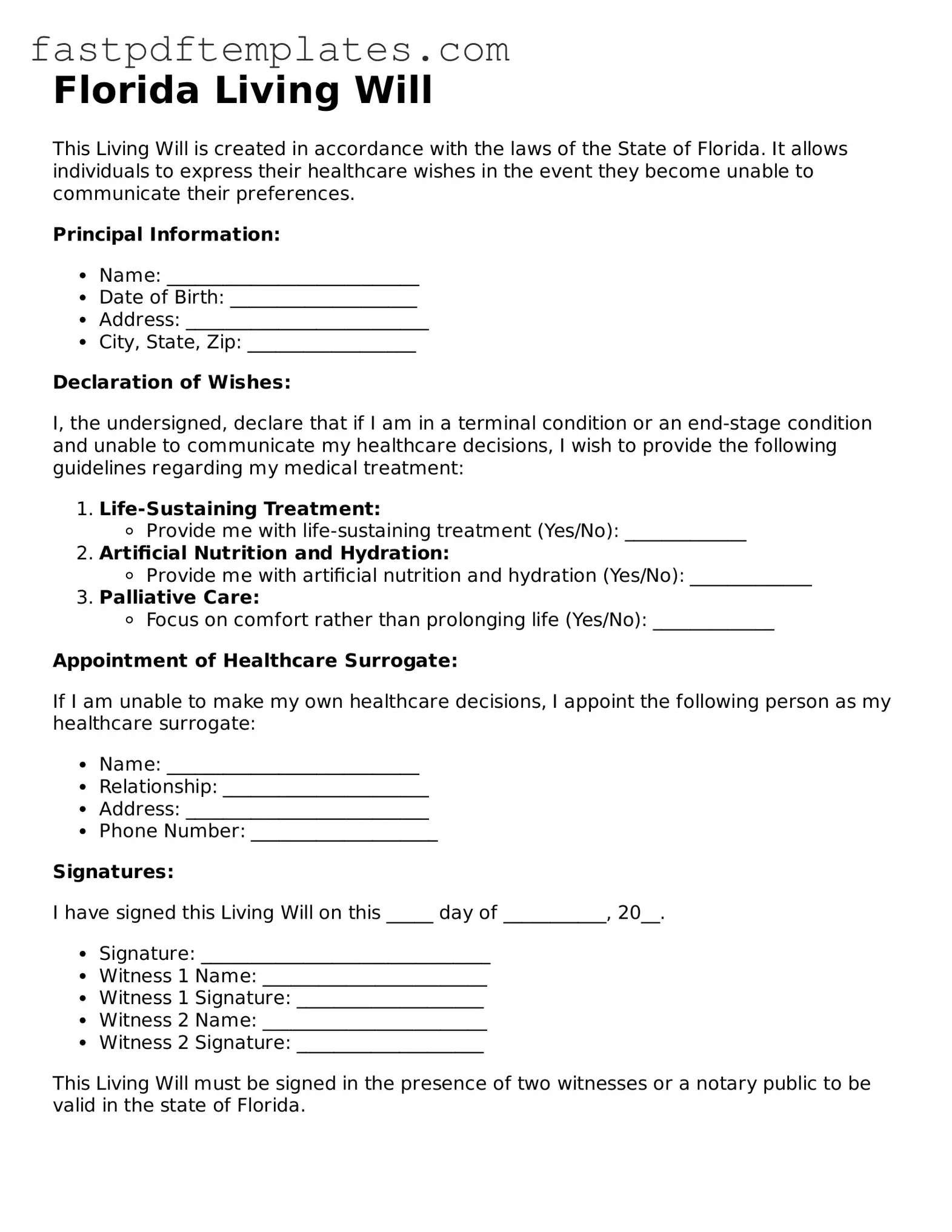Attorney-Approved Florida Living Will Document
A Florida Living Will form is a legal document that outlines your wishes regarding medical treatment in case you become unable to communicate your preferences. It serves as a guide for healthcare providers and loved ones, ensuring that your values and choices are respected. By preparing this important document, you take control of your healthcare decisions, even when you can't speak for yourself.
Access Document

Attorney-Approved Florida Living Will Document
Access Document
Your form still needs completion
Complete your Living Will online and download the final PDF.
Access Document
or
Click for PDF Form
